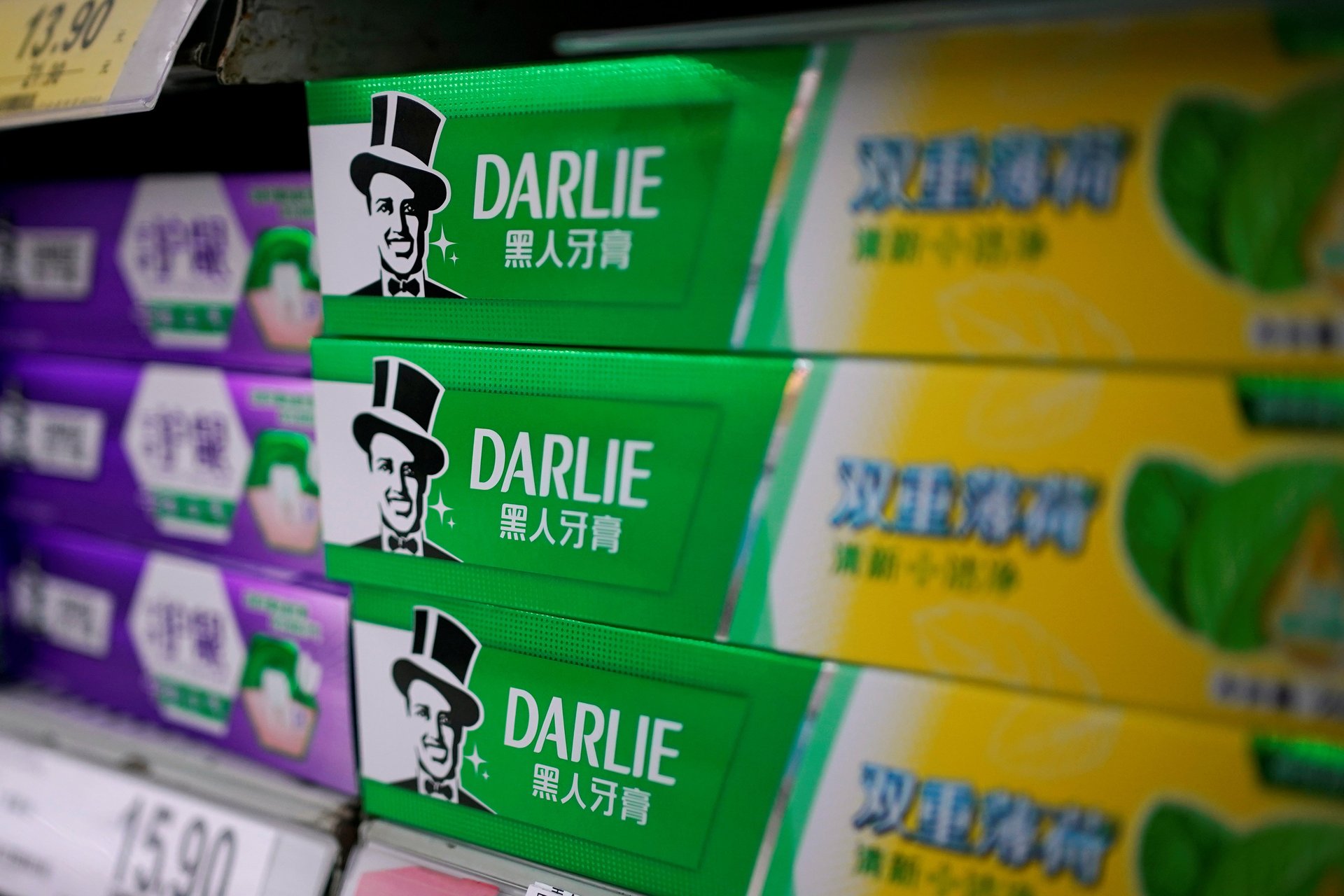“This is nuts”: the backlash to the rebranding of “Black person toothpaste” in China
Darlie, one of Asia’s best-selling toothpaste brands and well known for its racially charged name and history, is to be rebranded. While this move by American consumer product giant Colgate-Palmolive, which jointly owns the brand with its original founder, is being applauded elsewhere, a backlash is trending on Chinese social media against the West’s supposedly excessive political correctness.


Darlie, one of Asia’s best-selling toothpaste brands and well known for its racially charged name and history, is to be rebranded. While this move by American consumer product giant Colgate-Palmolive, which jointly owns the brand with its original founder, is being applauded elsewhere, a backlash is trending on Chinese social media against the West’s supposedly excessive political correctness.
The backlash is a continuation of a popular sentiment on the China internet that views anti-racism protests, or companies’ response to racism, as an “overcorrection.” It’s partly driven by Chinese state-owned media’s utilization of the social movement as a propaganda win against the US.
Founded in 1933 by Hawley & Hazel, a chemical company originally based in Shanghai and later in Hong Kong, the toothpaste brand was initially named “Darkie”, a racial slur used against African Americans at the time. Its original logo was a man in Blackface wearing a top hat and tuxedo while showing off his shiny white teeth with a big smile, an imagery reportedly based on white performers who blacked up to mock people of African descent in minstrel shows. The company later changed the name and redrew the logo to make the character more racially ambiguous, but it kept the Chinese name “Black person toothpaste.”
Colgate said last week that it is “working with our partner to review and further evolve all aspects of the brand, including the brand name.” The company’s announcement came as Black Lives Matter protests calling for racial equality are sweeping across the world after a white police officer killed unarmed Black man George Floyd in Minneapolis last month.
Many on China’s biggest social network Weibo say they are not happy about the rebranding plan. The hashtag “Colgate considers rebranding Darlie toothpaste” (link in Chinese) has been read nearly 100 million times on the platform so far. “I got it. Next, even blackboards could not have the character ‘black’, otherwise it would be disrespectful to Black people; neither could white boards have the word ‘white,” otherwise it would be seen as white supremacy,” a top comment (link in Chinese) under the hashtag red, which has received over 27,000 likes. “Nuts, this is nuts! Just because of political correctness, black can no longer be black, and white can no longer be white,” another said. Some say the rebranding is an “American-style speech crime” and compare it to China’s Cultural Revolution that persecuted numerous intellectuals in the 1960s, while others say they will stop using the brand if it changes its name.
Part of the users’ distaste of the rebranding might be attributed to the lack of explanation on the nuances and context of the George Floyd protests and racial issues in Chinese media. Some Chinese outlets failed to mention (link in Chinese) that the name “Darkie” is racist, and many also did not discuss the derogatory meaning of the logo’s Blackface, and simply said he was a Black man.
More broadly speaking, as Chenchen Zhang, an assistant professor of politics and international relations at Queen’s University Belfast, told Quartz, the racism from some Chinese people towards the Black community has many factors. There is a lack of awareness or education about race and racism in the country, the influence of popular culture, and a media that represents Black people in unfavorable ways, as well as a conviction that antiracism and political correctness is a conspiracy of Baizuo, or “white left”, a derogatory term used to describe “white liberal elites” on the Chinese internet.
Meanwhile, the Chinese government’s censorship regime, which largely tolerates racist and hate speech but silences politically critical voices on Chinese social media, indirectly encourages extremist speech. “It might be in the government’s interest to contain extreme nationalism and racism, but the threshold is much higher than, say, discussions about domestic unrest. The latter is seen as much more dangerous,” Zhang said.